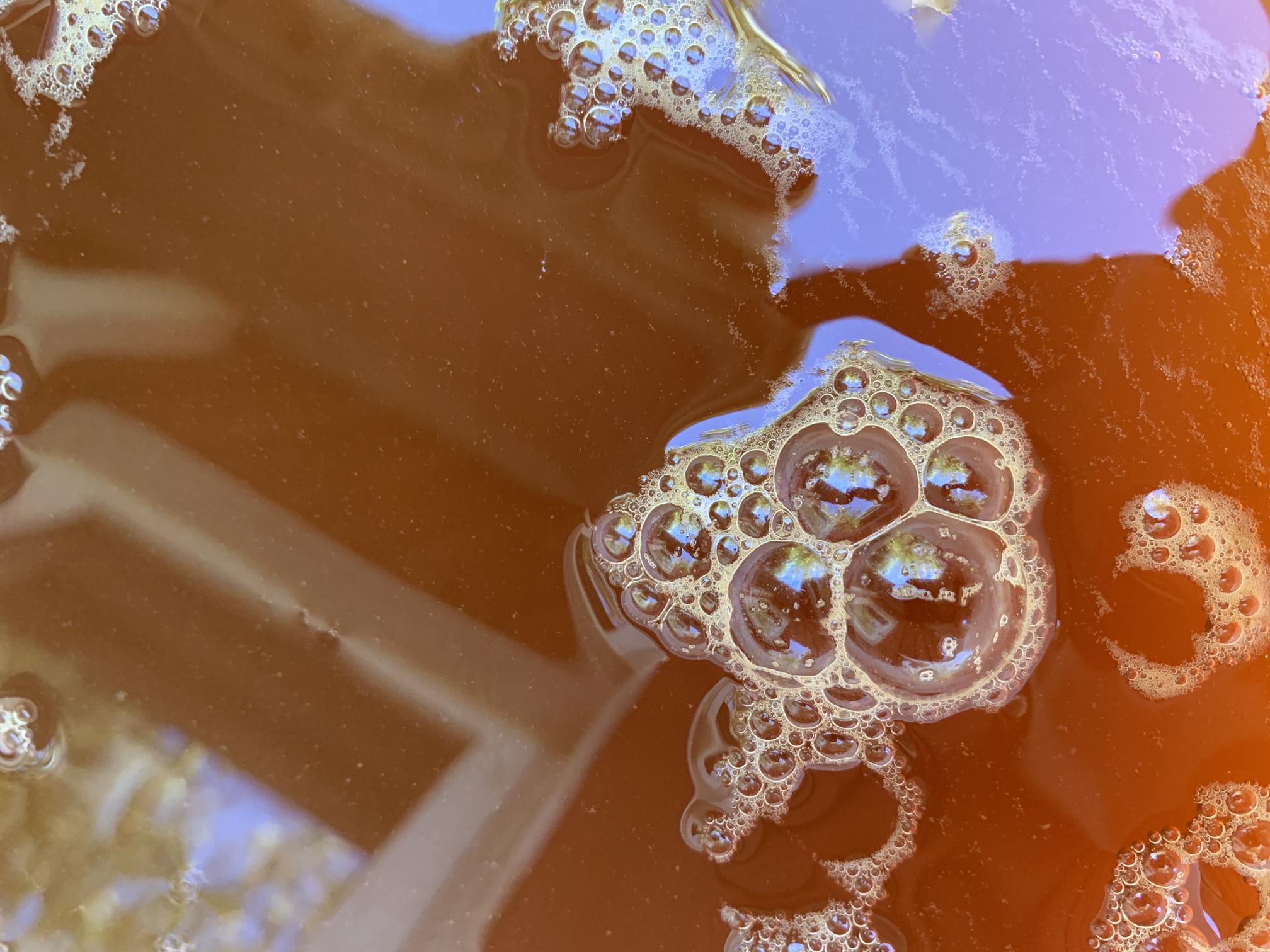Can homemade cider be toxic? It’s a question that crosses the mind of many cider enthusiasts who first venture into the exciting world of home brewing. The simple answer is: yes, but only if certain precautions are not taken.
In this blog post, we will delve into the risks associated with home cider brewing, such as contamination, the proper handling of alcohol, and the potential for methanol production.
As a seasoned home brewer myself, I can attest firsthand to these risks, and want to share my knowledge to ensure that your brewing experience is safe and enjoyable.
The Risk of Contamination
The most common risk associated with homemade cider is contamination. It’s a reality all home brewers must face, but one that can be easily mitigated with proper sanitation and care. Brewed cider can become a breeding ground for bacteria and wild yeast, which can cause off-flavors and even spoilage.

The key to preventing contamination is cleanliness. Everything that comes into contact with your cider should be cleaned and sanitized properly. This includes your hands, equipment, and even the fruit used to make the cider. Additionally, the brewing environment should be kept clean and free of potential contaminants.
As a brewer, I can tell you that neglecting cleanliness can lead to disappointing results. I’ve had batches of cider spoiled by careless handling, but these experiences served as valuable lessons in the importance of sanitation.
Alcohol: A Double-Edged Sword
Alcohol, the very essence of what makes a cider, can also pose a risk if not handled correctly. While the alcohol content in cider is typically lower than in spirits, it can still be harmful if consumed in large amounts.

The alcohol in cider is produced through fermentation, a process where yeast consumes sugar and produces alcohol and carbon dioxide. It’s critical to monitor the sugar levels and fermentation process to ensure that the alcohol content doesn’t get too high.
From my experience, it’s easy to get carried away with the excitement of brewing and end up with a cider that’s stronger than intended. Always remember to test your cider’s strength regularly and adjust your recipe accordingly.
The Methanol Myth
One of the most feared aspects of home brewing is the potential production of methanol, a toxic type of alcohol. Methanol can cause serious health problems, including blindness and even death. However, the risk of producing methanol in homemade cider is actually quite low.
Methanol is produced when pectin, a substance found in fruits, is broken down. However, the amount of methanol produced during cider fermentation is typically very low.
The danger comes from distillation, a process that can concentrate methanol. This is why distilling homemade spirits is illegal in many places.

Having brewed cider for years, I’ve never encountered methanol poisoning. However, I’ve always been mindful of the risk, especially when experimenting with different fruits and fermentation processes.
Signs of Contamination
How can you tell if your cider has been contaminated? There are a few signs to look out for. A sour or off-putting smell, unusual cloudiness, and a strange taste are all indicators of possible contamination.

Remember, it’s always better to be safe than sorry. If your cider shows signs of contamination, do not consume it. I’ve learned this the hard way, having once tasted a batch of cider that had a strange smell. Needless to say, the experience was less than pleasant.
How to Safely Brew Cider at Home
Brewing cider at home can be safe and enjoyable with the right precautions. Here are some tips to ensure a safe brewing experience:
1. Clean and sanitize all your equipment thoroughly before and after brewing.
2. Use fresh, high-quality ingredients to avoid introducing contaminants.
3. Monitor the fermentation process closely to ensure the alcohol content doesn’t become too high.
4. Be mindful of the risk of methanol production, especially if experimenting with different fruits or distillation/jacking.
These are the steps I always follow when brewing, and they have served me well over the years.
Conclusion
So, can homemade cider be toxic? Yes, it can, but the risks can be easily mitigated with proper care and precaution. The key is to maintain cleanliness, monitor alcohol levels, and be aware of the potential for methanol production.
Here are 10 key facts to remember:
1. Contamination is the most common risk in home brewing.
2. Cleanliness is the key to preventing contamination.
3. Alcohol can be harmful if not handled correctly.
4. Monitoring sugar levels and the fermentation process is crucial.
5. The risk of methanol production in homemade cider is low.
6. Methanol is dangerous and can cause serious health problems.
7. Signs of contamination include a sour smell, cloudiness, and strange taste.
8. Always discard contaminated cider.
9. Brewing cider at home can be safe with the right precautions.
10. Using fresh, high-quality ingredients can help prevent contamination.
In my personal experience, home brewing is a rewarding hobby that can yield delicious results. However, it’s important to be aware of the risks and take steps to ensure your cider is safe to consume. Happy brewing!
FAQs
Does apple juice contain methanol?
Yes, apple juice usually contain trace amounts of methanol. This is not dangerous unless distilled or concentrated otherwise.
Does homemade cider have methanol?
Homemade cider may contain trace amounts of methanol. Methanol is found in apple juice and is also a natural byproduct of the fermentation process that occurs when making cider. While the levels of methanol in homemade cider are generally low and considered safe for consumption, it is important to exercise caution and consume cider in moderation.
Can you get sick from homemade hard cider?
Yes, it is possible to get sick from homemade hard cider if it is contaminated with harmful bacteria or if it undergoes improper fermentation.




-recipe.jpg)